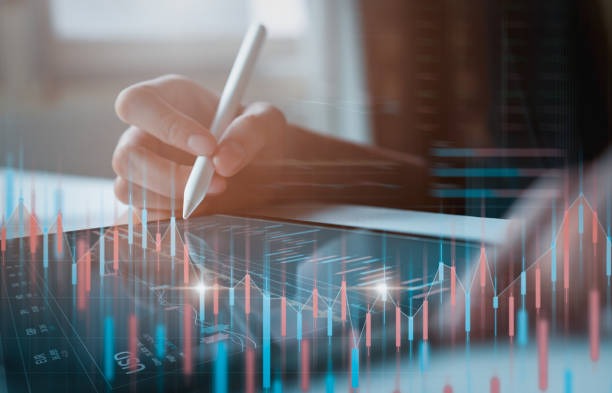The world is a dynamic place, and its economic events are the heartbeat that keeps the global markets pulsating. Traders, those intrepid navigators of the financial seas, are always on the lookout for the ripples that could turn into waves, affecting their investments and strategies. Let’s embark on a journey through the interconnectedness of global economic events and how they shape market trading.
The Butterfly Effect in Global Markets
Picture a butterfly flapping its wings in Brazil, and you might not immediately think of its impact on the stock markets of Tokyo. Yet, in the world of finance, such distant causes can have profound effects. Traders are well aware that a minor economic shift in one part of the globe can send shockwaves through the global markets. Whether it’s a change in interest rates, a political upheaval, or a natural disaster, these events can cause a ripple effect that influences trading decisions worldwide.
The Role of Traders in a Globalized Economy
Traders play a pivotal role in this interconnected web. They are the sentinels, keeping a watchful eye on the economic indicators and news that can sway the tides of the global markets. Their actions, in turn, can amplify or mitigate the effects of these events. A trader’s keen insight into the global economic landscape is crucial for making informed decisions that can lead to profitable outcomes.
The Influence of Geopolitics on Trading
Geopolitical events are among the most impactful on the global stage. Wars, elections, and diplomatic relations can all have a significant bearing on market trading. Traders must be adept at interpreting the implications of these events and how they might affect various sectors. For instance, a trade war between two major economies can lead to fluctuations in currency values and commodity prices, impacting trading strategies across the board.
Economic Indicators: The Trader’s Compass
Economic indicators serve as a trader’s compass, guiding them through the tumultuous seas of the global markets. From GDP growth rates to unemployment figures, these indicators provide valuable insights into the health of an economy. Traders rely on this data to make predictions and adjust their portfolios accordingly. A strong economic indicator can boost market confidence, while a weak one can trigger a sell-off.
The Power of Technology in Shaping Markets
In today’s digital age, technology has become an integral part of how global markets function. High-speed trading algorithms and real-time data analytics have revolutionized the way traders operate. The ability to process and act on information at lightning speed gives traders a competitive edge in a fast-paced global market. Moreover, advancements in communication technology have made it easier for traders to stay connected with the global markets, no matter where they are.
The Role of Central Banks in Steering Markets
Central banks are the unseen hands that guide the global economic ship. Their decisions on interest rates and monetary policy have far-reaching effects on market trading. Traders closely monitor these institutions, as a change in policy can lead to significant market movements. For example, an unexpected rate hike can cause a stir in the forex market, affecting currency traders around the world.
The Impact of Natural Disasters on Global Trade
Natural disasters, while tragic, also have a profound impact on global trade and, by extension, market trading. Earthquakes, hurricanes, and other calamities can disrupt supply chains, leading to shortages and price fluctuations. Traders must be prepared to adapt their strategies in the face of such events, as they can create both opportunities and risks.
The Global Reach of Pandemics
The recent COVID-19 pandemic has shown us the extent to which a health crisis can affect the global markets (In Arabic, it is called “الاسواق العالمية“). As economies shut down and then reopened, traders had to navigate a landscape of uncertainty and volatility. The pandemic underscored the importance of being able to respond quickly to changing conditions in the global markets.
The Influence of Consumer Sentiment on Trading
Consumer sentiment is a powerful force in the global markets. When consumers are confident, they spend more, which can boost economic growth and positively impact trading. Conversely, when confidence is low, spending drops, and markets can suffer. Traders (In Arabic, it is called “المتداول“) must keep a finger on the pulse of consumer sentiment to anticipate market trends and make informed decisions.
The Importance of Diversification in a Global Context
In the face of global economic events, diversification becomes a trader’s best friend. By spreading investments across different markets, sectors, and asset classes, traders can mitigate the risks associated with economic volatility. This strategy allows them to capitalize on opportunities in some areas while protecting against losses in others.
The Future of Trading in a Globalized World
As the world continues to become more interconnected, the future of trading will be shaped by the ability to navigate and leverage global economic events. Traders who can stay ahead of the curve, anticipate changes, and adapt their strategies will be the ones who thrive in this ever-evolving landscape. The global markets offer both challenges and opportunities, and it’s up to the traders to seize them.
In conclusion, the global markets are a complex tapestry woven from the threads of economic events around the world. Traders, with their keen understanding and strategic actions, play a crucial role in this intricate dance. As we’ve seen, from geopolitical shifts to natural disasters, from technological advancements to central bank policies, every event has the potential to reshape the global markets. It’s a dynamic and ever-changing environment, and those who can navigate it with skill and foresight will be the ones who succeed in the world of trading.


